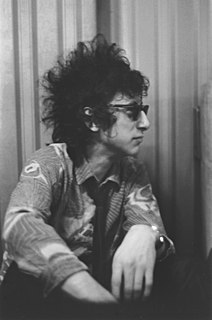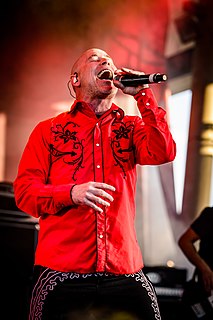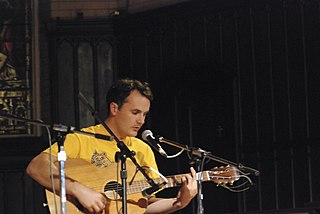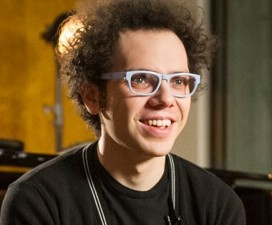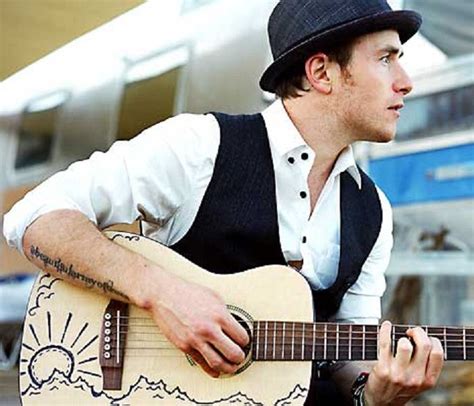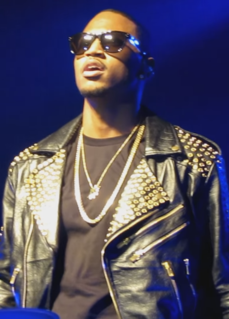A Quote by John Cooper Clarke
They're very different things, a poem and a song, you wouldn't think they would be, but they are.
Quote Topics
Related Quotes
When a person listens to a good song, and they can look out at the world and their lives and see the dark and the light, the negative and the positive, all the different elements, all come together in one holistic poem, that is a very healing and very reductive thing, and that's what my music is about.
One of the things that was really influential early on was Ezra Pound's Cantos, one poem he worked on for 50 years. It's epic. I had a great deal of difficulty understanding it. One of the problems was you'd be reading along in English and he would move to a Chinese ideogram or French-he actually used seven different languages in a given poem. And for somebody who's not fluent in different languages it has the impact of rupturing your way of understanding something.
The subject of the poem usually dictates the rhythm or the rhyme and its form. Sometimes, when you finish the poem and you think the poem is finished, the poem says, "You're not finished with me yet," and you have to go back and revise, and you may have another poem altogether. It has its own life to live.
I think our songwriting has evolved. We can show that we have continued to branch out and do different stuff and incorporate different instruments. When it comes to writing, I think that we have pushed the envelope. We can do whatever we want to try - a longer song or a shorter song, some different instruments, some piano, an intro with just vocals, something that's scathing. Whatever. However we feel the song should go, that's what we will do. With that mindset, I think it's made us better writers.
The Jews started it all-and by 'it' I mean so many of the things we care about, the underlying values that make all of us, Jew and Gentile, believer and aethiest, tick. Without the Jews, we would see the world through different eyes, hear with different ears, even feel with different feelings ... we would think with a different mind, interpret all our experience differently, draw different conclusions from the things that befall us. And we would set a different course for our lives.
It's different for every song. But for 'Say Something,' I think it was Chad who had an idea on guitar, and I had an idea on piano for different songs, and we just married them together. We bounce things off each other constantly and kind of massage all these ideas into a three and a half minute pop song.
Barriers have been broken: rappers are singing, and singers are rapping. You might catch a rapper on a rock song, a pop artist on a hip-hop song - there are so many different things that are going on today. That is the same way in which we live our lives; we're all over the place. I like to try different things.
